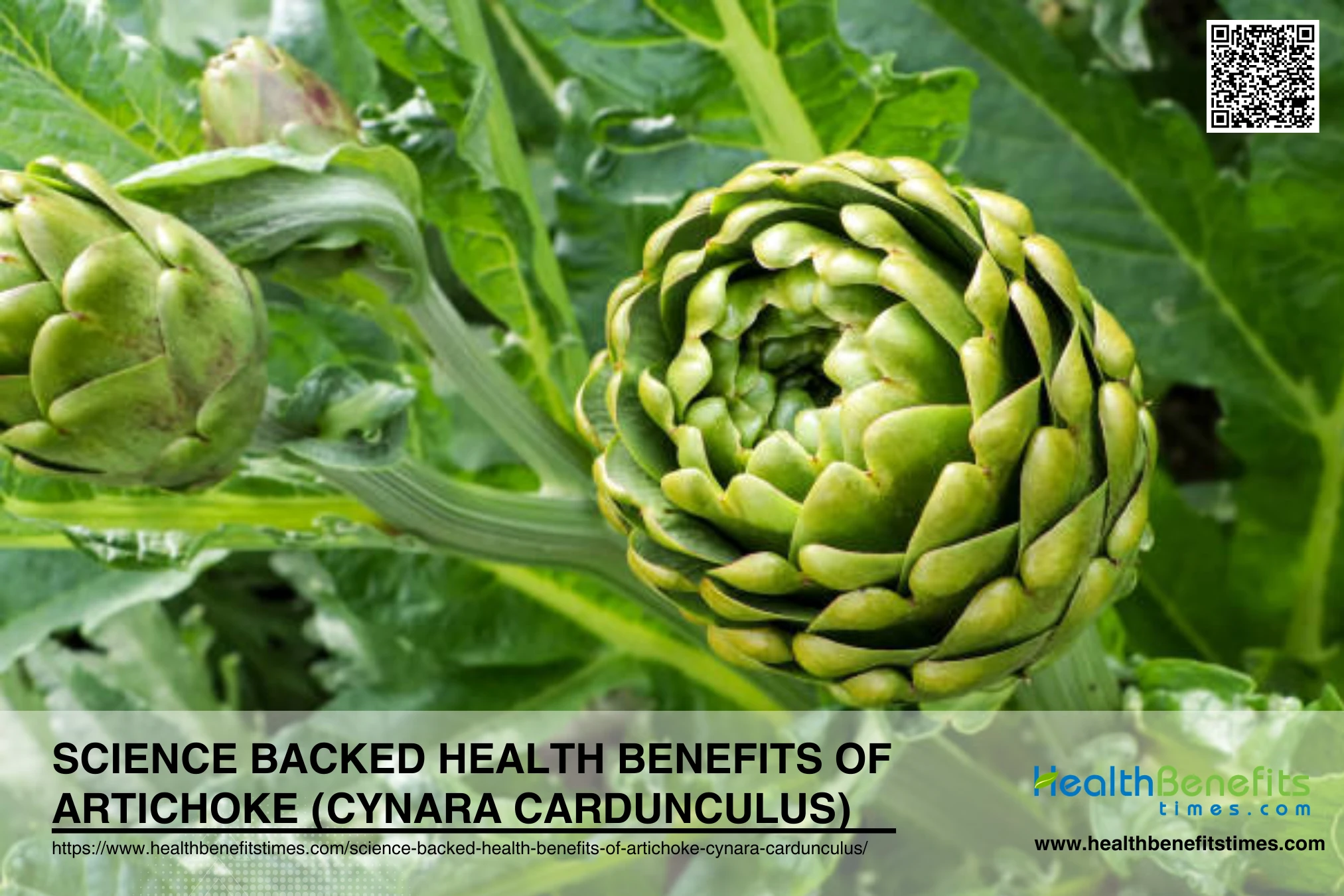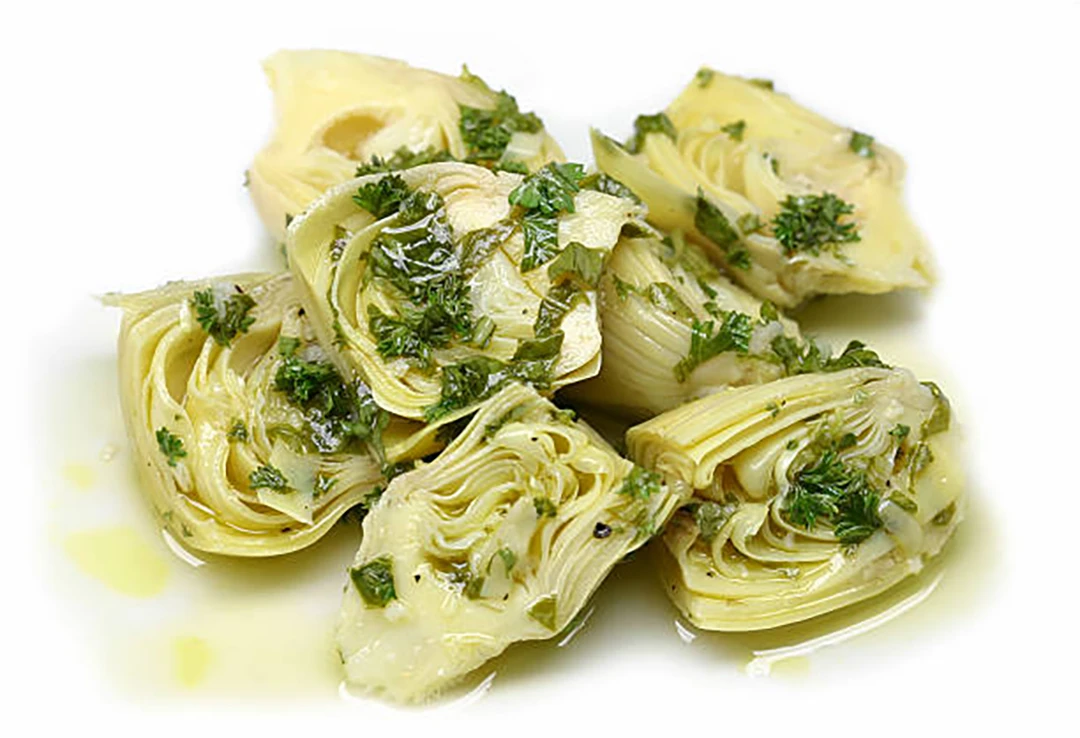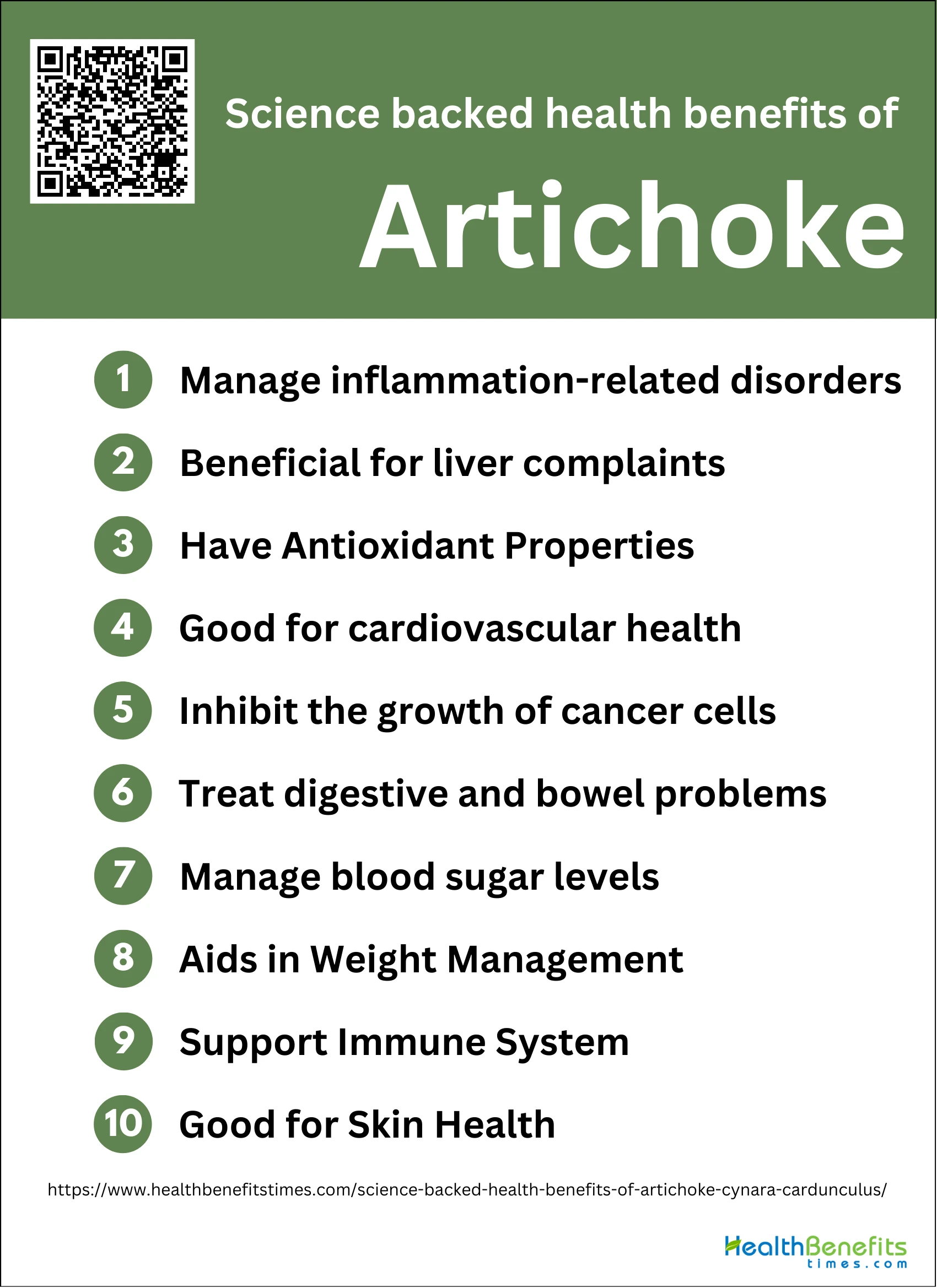- Artichoke is amMediterranean plant, edible flower heads, nutritional, medicinal, antioxidant benefits.
- Artichoke is a nutritious, fiber-rich, antioxidants, traditional medicine, boosts digestion, liver health.
- Artichoke lowers cholesterol, triglycerides, blood pressure; antioxidant, fiber supports cardiovascular health.
- Artichoke enhances insulin sensitivity, reduces blood glucose, manages blood sugar effectively.
- Incorporate artichoke in roast, add to salads, pastas, dips, breakfast dishes.
 Artichokes, scientifically known as Cynara cardunculus, are more than just a culinary delight; they are a powerhouse of health benefits backed by science. Native to the Mediterranean region, these thistle-like plants have been used for centuries not only as a food source but also for their medicinal properties. Modern research has unveiled a plethora of health benefits associated with artichokes, ranging from improved digestion and liver health to reduced cholesterol levels and enhanced cardiovascular health. Rich in fiber, antioxidants, and essential nutrients, artichokes are a versatile addition to any diet, offering both flavor and functional health benefits. This article delves into the science-backed health benefits of artichokes, shedding light on why this ancient plant continues to be a modern marvel in the world of nutrition and health.
Artichokes, scientifically known as Cynara cardunculus, are more than just a culinary delight; they are a powerhouse of health benefits backed by science. Native to the Mediterranean region, these thistle-like plants have been used for centuries not only as a food source but also for their medicinal properties. Modern research has unveiled a plethora of health benefits associated with artichokes, ranging from improved digestion and liver health to reduced cholesterol levels and enhanced cardiovascular health. Rich in fiber, antioxidants, and essential nutrients, artichokes are a versatile addition to any diet, offering both flavor and functional health benefits. This article delves into the science-backed health benefits of artichokes, shedding light on why this ancient plant continues to be a modern marvel in the world of nutrition and health.
What is Artichoke ?
Artichoke is a perennial plant native to the Mediterranean region and widely cultivated for its edible flower heads, which are a staple in various Mediterranean dishes. This plant is not only valued for its culinary uses but also for its rich content of bioactive compounds, including phenolic acids, flavonoids, and inulin, which contribute to its numerous health benefits. Artichoke extracts have demonstrated significant antioxidant properties, making them effective in scavenging reactive oxygen and nitrogen species, which suggests their potential as natural antioxidants. Additionally, artichoke has been traditionally used for its hepatoprotective, anticarcinogenic, and hypocholesterolemic effects, attributed to compounds like cynarin and luteolin. The plant also plays a role in sustainable agriculture, with its by-products being utilized to extract valuable compounds like inulin, thus promoting a circular economy within the artichoke supply chain. Overall, artichoke is a multifunctional plant with significant nutritional, medicinal, and industrial applications.
Nutritional Profile
Artichokes boast an impressive nutritional profile, making them a valuable addition to any diet. Each cup of cooked artichoke (approximately 170 grams) contains about 90 calories, 20 grams of carbohydrates, 10 grams of fiber, 5 grams of protein, and only 0.6 grams of fat. They are particularly rich in essential vitamins and minerals, including folate, vitamin C, magnesium, and potassium. Additionally, artichokes are packed with antioxidants, which help combat oxidative stress and support overall health.
Overview of Vitamins and Minerals in Artichokes
Artichokes are a nutrient-dense food, providing a wide array of vitamins and minerals essential for maintaining good health. They are particularly high in folate, vitamin C, and vitamin K, along with significant amounts of magnesium, phosphorus, and potassium. These nutrients contribute to various bodily functions, including immune support, bone health, and cardiovascular health. The rich antioxidant content in artichokes also helps protect the body from free radical damage, reducing the risk of chronic diseases.
Vitamin C
Vitamin C is a vital nutrient found in artichokes, with one cup of cooked artichoke providing about 12% of the daily value (DV). This powerful antioxidant plays a crucial role in immune function, skin health, and the synthesis of collagen, which is essential for wound healing and maintaining the integrity of connective tissues. Additionally, vitamin C helps enhance the absorption of iron from plant-based foods, making it an important nutrient for vegetarians and vegans.
Vitamin K

Artichokes are an excellent source of vitamin K, providing approximately 21% of the daily value per cup. Vitamin K is essential for blood clotting and bone metabolism. It helps in the synthesis of proteins required for blood coagulation and supports bone health by promoting the activity of osteocalcin, a protein involved in bone mineralization. Adequate intake of vitamin K can help reduce the risk of osteoporosis and fractures.
Folate
Folate, also known as vitamin B9, is abundant in artichokes, with one cup offering about 34% of the daily value. Folate is crucial for DNA synthesis and repair, making it especially important during periods of rapid growth, such as pregnancy and infancy. Adequate folate intake is essential for preventing neural tube defects in newborns and supporting overall cellular function. It also plays a role in reducing homocysteine levels, which can help lower the risk of cardiovascular diseases.
Magnesium
Magnesium is another essential mineral found in artichokes, with one cup providing about 15% of the daily value. This mineral is involved in over 300 enzymatic reactions in the body, including energy production, protein synthesis, and muscle and nerve function. Magnesium also plays a role in maintaining normal blood pressure, supporting bone health, and regulating blood glucose levels. Adequate magnesium intake is important for overall health and well-being.
Dietary Fiber
Artichokes are an excellent source of dietary fiber, with one cup containing about 10 grams, which is 40% of the daily value. Dietary fiber is crucial for maintaining healthy digestion, preventing constipation, and promoting regular bowel movements. It also helps in managing blood sugar levels, reducing cholesterol levels, and supporting weight management by promoting a feeling of fullness. High-fiber diets are associated with a lower risk of developing chronic diseases such as heart disease, diabetes, and certain types of cancer.
Caloric Content and Macronutrients
Artichokes are low in calories, with one cup of cooked artichoke containing just 90 calories. They provide a balanced macronutrient profile, including 20 grams of carbohydrates, 10 grams of dietary fiber, 5 grams of protein, and only 0.6 grams of fat. This makes artichokes an excellent choice for those looking to maintain or lose weight while ensuring they receive essential nutrients. The high fiber and protein content contribute to satiety, helping to control appetite and reduce overall calorie intake
Science backed health benefits of Artichoke
Discover the power-packed potential of artichokes! These spiky, green wonders, scientifically known as Cynara cardunculus, are more than just a delicious addition to your plate. Packed with fiber, antioxidants, and essential nutrients, artichokes have been used for centuries in traditional medicine. Now, modern science is catching up, revealing a treasure trove of health benefits that make this Mediterranean marvel a true superfood. From boosting digestive health to supporting your liver and heart, artichokes are proving to be nature’s multitasking miracle. Ready to uncover the science-backed reasons why you should be adding more artichokes to your diet? Let’s dive into the impressive list of health benefits that these tasty thistles bring to the table!
1. Manage inflammation-related disorders
Artichoke has shown promising potential in managing inflammation-related disorders, thanks to its rich content of bioactive compounds, particularly polyphenols like chlorogenic acid, cynarin, and luteolin. These compounds exhibit potent anti-inflammatory and antioxidant properties that can help mitigate various inflammatory conditions. Artichoke extract can suppress pro-inflammatory cytokines and enzymes, such as TNF-α, IL-1β, and COX-2, while also activating anti-inflammatory pathways. Artichoke extract has been found to alleviate intestinal inflammation by modulating inflammatory markers and improving gut barrier function. Additionally, the antioxidant properties of artichoke compounds help neutralize free radicals and reduce oxidative stress, which is often a key factor in chronic inflammatory conditions.
What Research Says?
- Artichoke leaves have healthy substances like caffeoylquinic acids, luteolin, and apigenin. These help the artichoke fight off damage and swelling in our bodies. Tests called High-performance liquid chromatography (HPLC) found these substances in artichoke extracts. The extracts are good at stopping damage caused by harmful molecules and stress in our cells.
- Artichoke helps reduce swelling because it can block a specific pathway in the body known as NF-κB. Research shows that substances found in artichokes stop this pathway from working, which lowers the levels of certain swelling-related chemicals like nitric oxide (NO) and prostaglandin E2 (PGE2).
- Artichokes have antioxidants that help turn on something called the Nrf2 pathway. A key part in artichokes, cynaropicrin, starts up the AhR-Nrf2-Nqo1 pathway. This makes more antioxidant enzymes and lowers stress in our cells.
- Artichoke extracts can help protect the liver from damage caused by too much fat or alcohol. They work by lowering oxidative stress, calming inflammation, and helping with fat breakdown.
- Artichoke extracts can block skin inflammation and tumor growth caused by TPA in mice. The active parts of artichoke flowers show strong anti-inflammatory actions. This points to their use in preventing and treating skin problems.
2. Beneficial for liver complaints

The plant’s rich content of bioactive compounds, particularly polyphenols like chlorogenic acid, cynarin, and flavonoids, contribute to its hepatoprotective properties. Artichoke extract can help improve liver function in patients with non-alcoholic fatty liver disease (NAFLD) by reducing liver enzymes such as ALT and AST, as well as improving ultrasound parameters. The antioxidant and anti-inflammatory effects of artichoke extract play a crucial role in protecting liver cells from oxidative stress and damage. Additionally, artichoke has been found to stimulate bile production and flow, which aids in the removal of toxins and supports overall liver function.
What Research Says?
- Artichoke leaf extract (ALE) can protect the liver in many tests. For example, it helps mice with liver damage from too much alcohol. It does this by reducing stress on cells and calming swelling. Also, ALE helps rats with a type of liver disease caused by their diet. It makes their fat levels better and lowers signs of cell stress.
- Artichoke’s antioxidant power mainly comes from its high levels of phenolic compounds. These include caffeoylquinic acids and flavonoids like luteolin and apigenin derivatives. These substances help stop oxidative stress and lipid peroxidation, which can harm liver cells. Also, artichoke extracts can control the production of proteins that defend against antioxidants. They can also lower inflammation-related proteins, adding to their liver-protecting benefits.
- Clinical studies show that artichokes are good for liver health. For instance, a small trial showed that water extracts from wild Egyptian artichokes greatly lowered hepatitis C virus levels. They also made liver enzyme levels normal in patients. This means artichokes might help treat viral hepatitis along with other treatments.
3. Have Antioxidant Properties
Artichoke is renowned for its potent antioxidant properties, which play a crucial role in combating oxidative stress and promoting overall health. The high levels of polyphenols, such as chlorogenic acid, cynarin, and luteolin, contribute significantly to its antioxidant capacity. These compounds help neutralize free radicals, thereby reducing cellular damage and lowering the risk of chronic diseases like cancer, cardiovascular diseases, and neurodegenerative disorders. Artichokes rank among the top vegetables in terms of antioxidant content, with a high Oxygen Radical Absorbance Capacity (ORAC) score, indicating their ability to scavenge harmful free radicals effectively. Additionally, the antioxidants in artichokes support liver health by enhancing detoxification processes and protecting liver cells from damage. This makes artichokes a valuable addition to a diet aimed at improving antioxidant intake and overall health.
What Research Says?
- Artichoke leaves and heads have lots of phenolic compounds. These are mainly what give them their antioxidant power. Using a method called high-performance liquid chromatography (HPLC), scientists found important phenolic acids and flavonoids in them. These include chlorogenic acid, cynarin, luteolin, and apigenin derivatives. These substances help the plant get rid of harmful oxygen types (ROS) and nitrogen types (RNS). This lowers oxidative stress.
- Studies show that artichokes can help protect the body from damage in animals. One study with diabetic rats found that artichoke leaf extract lowered harmful markers like malondialdehyde and boosted good ones like glutathione in red blood cells. Another study found that artichoke extract helped rats with lead poisoning by lowering bad markers and making their liver tissue healthier.
- Artichoke is full of phenols and strong antioxidants, making it a good health product. People have suggested using parts of the artichoke like leaves and stems to make food additives and health products. This can cut down on waste and add value. A review and analysis of animal studies also show that artichoke is a good antioxidant. It could be useful for treatments.
4. Good for cardiovascular health

Artichoke extract can help reduce total cholesterol, LDL (bad) cholesterol, and triglyceride levels, which are key risk factors for heart disease. The polyphenols found in artichokes, particularly chlorogenic acid and cynarin, contribute to these lipid-lowering effects. Additionally, artichoke extract has been found to have antihypertensive properties, helping to lower both systolic and diastolic blood pressure in individuals with elevated levels. This effect may be due to the artichoke’s ability to promote the production of nitric oxide, which helps dilate blood vessels and improve blood flow. Furthermore, the high antioxidant content of artichokes, including flavonoids and anthocyanins, helps protect against oxidative stress and inflammation, both of which play roles in the development of cardiovascular diseases. The fiber content in artichokes also contributes to heart health by helping to manage cholesterol levels and supporting overall digestive health.
What Research Says?
- Artichoke leaf extract (ALE) is known for helping lower fat in the blood. Studies show that ALE can greatly cut down bad cholesterol (LDL), total cholesterol, and fats called triglycerides. Ingredients like luteolin and chlorogenic acid are key in this process. For example, taking 2 to 3 grams of ALE a day can reduce LDL by 8-49 mg/dL, total cholesterol by 12-55 mg/dL, and triglycerides by 11-51 mg/dL. These results mean ALE might be a good supplement for controlling dyslipidemia, which is a big risk for heart disease.
- Besides lowering fats in the blood, artichoke may help control blood sugar. A detailed review of studies found that taking artichoke can lower fasting blood sugar levels. But it didn’t make a big difference in other blood sugar tests like fasting insulin and long-term sugar control. This means artichoke might help with blood sugar, but we need more research on its effects on insulin and long-term sugar control.
- Endothelial dysfunction is key in developing atherosclerosis and heart problems. Research shows that wild artichoke can boost endothelial function by making more nitric oxide, which helps relax blood vessels. In older rats, wild artichoke helped their blood vessels work like those of young rats. This suggests that artichoke might help keep blood vessels healthy, especially in older people.
- Oxidative stress and inflammation play big roles in heart diseases. Artichoke has phenolic compounds, like caffeoylquinic acids and flavonoids, that are strong antioxidants. They fight oxidative stress and lower inflammation markers such as IL-6, TNF-α, and IL-1β. Also, artichoke extract can block metalloproteinase 9 (MMP-9), an enzyme linked to heart problems. These actions show how artichoke helps the heart.
5. Inhibit the growth of cancer cells
The polyphenolic compounds found in artichoke extracts, particularly chlorogenic acid, cynarin, and flavonoids like luteolin and apigenin, have been associated with antiproliferative and pro-apoptotic effects on cancer cells. Artichoke extracts can reduce cell viability, inhibit cell growth, and trigger apoptotic mechanisms in different cancer cell lines, including breast, colorectal, and oral squamous carcinoma. Artichoke polyphenols could induce apoptosis and decrease the invasive potential of these cells. Additionally, artichoke extracts have been found to suppress cancer cell growth by inducing premature senescence and modulating DNA hypomethylation and lysine acetylation levels in total proteins. The anticancer effects of artichoke extracts are often attributed to their ability to increase reactive oxygen species (ROS) production in cancer cells, upregulate pro-apoptotic genes like Bax and caspase-9, and downregulate anti-apoptotic genes like Bcl-2.
What Research Says?
- Many studies show that artichoke extracts can make cancer cells self-destruct. For example, extracts rich in polyphenols from artichokes can start this process in human breast cancer cells by activating two paths: one through the mitochondria and another through death-receptors. They turn on proteins called caspase-9 and caspase-8. In the same way, artichoke leaf extracts can cause colon cancer cells to self-destruct by affecting the mitochondria and damaging the cells’ DNA.
- Artichoke extracts can stop the growth of different cancer cells. In leukemia cells, a part of the artichoke called Cynara cardunculus L. (CCE) stopped cells from moving through their growth cycle and caused them to die through a process called apoptosis. This happened by activating the caspase-9/3 pathway. In cells from mouth cancers, artichoke extract also stopped cell growth, but at a different stage. It made more of the genes that cause cell death, like Bax and caspase-9, and less of the gene that prevents it, called Bcl-2.
- Artichoke extracts can slow down the growth of breast cancer cells. When these cells are treated with artichoke extracts for a long time, they make more reactive oxygen species (ROS). This leads to the cells stopping their growth and aging early because of changes in genes and the effects of ROS.
- Artichoke extracts can kill cancer cells but not normal cells. For instance, an extract from unused parts of artichokes greatly reduced the survival of Caco-2 and MCF-7 cancer cells. But it did not harm healthy fibroblast cells as much. Also, cynarin, a substance in artichokes, affects normal, long-lasting, and cancer cells differently. It helps normal cells live longer by triggering stress response proteins.
6. Treat digestive and bowel problems

These compounds have been found to stimulate bile production and flow, which aids in digestion and helps alleviate symptoms of indigestion such as bloating, nausea, and abdominal discomfort. Efficacy of artichoke leaf extract in reducing symptoms of irritable bowel syndrome (IBS) and functional dyspepsia. People taking artichoke leaf extract for six weeks experienced a significant reduction in IBS symptoms, with 96% of participants rating the extract as equally effective or better than other IBS treatments. Another study found that artichoke leaf extract reduced IBS symptoms by 26% and improved quality of life by 20% after two months of treatment. The prebiotic fiber inulin, found in artichokes, also contributes to digestive health by promoting the growth of beneficial gut bacteria and improving bowel regularity.
What Research Says?
- Artichokes have many helpful compounds like phenolic acids, flavonoids, inulin, and cynarine. These help the body as antioxidants, reduce swelling, and protect the liver. They are good for your digestion.
- Fibers from artichokes, like inulin, help good gut bacteria grow. This includes Lactobacillus plantarum and Bifidobacterium bifidum. By doing this, they support a healthy gut with the right balance of bacteria. This is key for good digestion and regular bowel movements.
- Artichoke has phenolic compounds like caffeoylquinic acids and flavonoids. These have strong antioxidant powers. They help lower oxidative stress and inflammation in the gut. This improves digestion health.
- Artichoke has special compounds that help with digestion and liver health. They can be made into natural products to treat stomach problems. This offers a natural choice instead of regular medicines.
7. Manage blood sugar levels
Artichoke has demonstrated significant potential in managing blood sugar levels, making it a valuable natural remedy for individuals with diabetes or impaired glucose tolerance. The bioactive compounds in artichokes, particularly chlorogenic acid and cynarin, play a crucial role in enhancing insulin sensitivity and reducing blood glucose levels. Artichoke extract can significantly lower fasting blood sugar levels and improve glycemic control in overweight individuals with impaired fasting glycemia (IFG). Additionally, artichoke extract has been found to promote glucose uptake and consumption, decrease glucose production, and increase glycogen storage in liver cells, thereby improving overall glucose metabolism. The antioxidant properties of artichokes also help mitigate oxidative stress, which is often associated with insulin resistance and diabetes.
What Research Says?
- Study shows that artichokes can lower blood sugar. A review of clinical trials found that artichokes and their products greatly lowered fasting blood sugar levels (on average by -5.28 mg/dl, with a certainty range of -8.95 to -1.61; p = 0.005). But they did not make much difference in other blood sugar measures like fasting insulin and Hemoglobin A1c (HbA1c). It was also noted that taking artichoke alone, without other supplements, was better at lowering HOMA-IR levels (on average by -0.52, with a certainty range of -0.85 to -0.19; p = 0.002).
- Artichoke’s antioxidant features help lower blood sugar levels. A study with diabetic rats showed that artichoke leaf extract (ALE) greatly reduced signs of oxidative stress and boosted red blood cell glutathione levels. This is important because oxidative stress can lead to insulin resistance and make diabetes worse.
- Eating a wild artichoke meal can lower blood sugar and insulin levels after eating in healthy people. However, it doesn’t work for those with metabolic syndrome (MS). This means artichokes might help more if you don’t have serious metabolic problems.
- Artichoke helps lower blood sugar in several ways. One study showed that substances called carnitine-linked transporters (OCTN1 and OCTN2) help protect against high blood fat levels and insulin resistance when using Cynara cardunculus extract. Also, artichoke has many phenolic compounds, like chlorogenic acid and luteolin. These are linked to its ability to reduce blood sugar and cholesterol levels.
- These results are important, especially for people with early signs of diabetes or slight insulin resistance. Adding artichoke to diets may help control blood sugar. But we need more long-term studies with more people to make solid rules for using it in diabetes care.
8. Aids in Weight Management

This Mediterranean plant is low in calories but high in fiber, making it an excellent addition to weight loss diets. The high fiber content, particularly inulin, helps promote feelings of fullness and reduces hunger, which can lead to decreased calorie intake. Additionally, artichokes have a diuretic effect that can help eliminate excess fluid retention in the body. Artichoke extract may inhibit digestive enzymes like pancreatic lipase and α-amylase, potentially reducing fat absorption. The plant’s antioxidant compounds, including cynarin and flavonoids, may also support metabolic health and fat digestion.
What Research Says?
- Artichoke (Cynara scolymus) has several ways to help fight obesity. A detailed review shows that artichoke blocks digestive enzymes like pancreatic lipase, α-amylase, and α-glucosidase. These enzymes are important for breaking down fats and carbs. Also, artichoke boosts bile secretion, which helps digest and absorb fat. It stops inflammation and harmful oxygen-related molecules, betters liver function, and changes gut bacteria. Together, these actions increase the breakdown of fats and improve how the body handles them. This leads to lower blood sugar levels.
9. Support Immune System
This Mediterranean plant is packed with antioxidants, particularly polyphenols, which help combat oxidative stress and reduce inflammation in the body. These antioxidants, including vitamin C, can repair damaged cells that may impair immune function. Artichokes are also a good source of inulin, a prebiotic fiber that promotes the growth of beneficial gut bacteria, which plays a crucial role in maintaining a healthy immune system. Additionally, artichokes contain minerals like magnesium and potassium, which are essential for proper immune function. Artichoke extract can improve the immune response and antioxidant system.
What Research Says?
- A study looked at how Cynara scolymus affects the immune system in rats. The research showed that giving rats a lot of artichoke extract (4.0 g/kg body weight) made their delayed-type hypersensitivity (DTH) response weaker. This happened in both male and female rats. Also, male rats had more active reactive oxygen species from macrophages. This suggests a complicated link with the immune system.
- Studies have found that artichoke leaves contain phenolic compounds like chlorogenic acid, cynarin, and luteolin-7-rutinoside. These substances fight off harmful microbes. They may also help control the immune system by affecting the balance of microbes.
- Artichoke polyphenols, like 5-O-caffeoylquinic acid and dicaffeoylquinic acids, are antioxidants that help our immune system. They fight oxidative stress, which can weaken our immunity. Research shows that artichoke extracts keep their antioxidant power even after digestion in a lab setting. This suggests they could also work well inside the body.
10. Good for Skin Health
Artichoke is highly beneficial for skin health due to its rich content of antioxidants, vitamins, and polyphenols. The antioxidants, including ferulic acid, caffeic acid, and silymarin, help combat free radicals, thereby reducing oxidative stress and preventing premature aging. Artichoke extract is also rich in vitamin C, which boosts collagen production, enhancing skin elasticity and reducing the appearance of wrinkles and fine lines. Additionally, the anti-inflammatory properties of artichoke extract help soothe irritated skin, making it effective for conditions like acne, eczema, and rosacea. Clinical studies have shown that artichoke extract can improve skin firmness and elasticity, contributing to a more youthful and radiant complexion. Regular use of artichoke-based skincare products can lead to minimized pores, improved skin texture, and a healthier overall appearance.
What Research Says?
- Artichoke has many healthful compounds. The main ones are chlorogenic acid, cynarin, and flavonoids like luteolin. These have strong antioxidant powers. They help get rid of harmful oxygen and nitrogen in the body.
- Artichoke’s antioxidant powers are good for the skin. Oxidative stress happens when there’s an imbalance between free radicals and antioxidants in our body. This can lead to skin aging and problems. Research shows that artichoke extracts can fight off ROS and RNS well. They have low IC50 values, which means they’re strong antioxidants. So, artichokes might be a great natural source of antioxidants for keeping skin healthy.
- Artichoke has properties that fight germs. This is good for keeping skin healthy by stopping infections and helping cuts heal. The compounds in artichoke, like cynarin and flavonoids, can kill bacteria and fight viruses. So, artichoke might be a natural way to treat different skin infections.
- Artichoke has healthy parts that are good for your skin. It has a lot of fiber, vitamins, and minerals. The inulin in artichoke helps your gut health, which is important for clear skin. Also, it protects your liver and helps clean out toxins, making your skin healthier.
How to incorporate artichoke into a balanced diet
To incorporate artichoke into a balanced diet, consider the following tips:

As a nutrient-dense side dish:
Steam or roast whole artichokes and serve them as a low-calorie, high-fiber side dish alongside lean proteins and whole grains. This preparation method allows you to enjoy the full nutritional benefits of the entire artichoke, including the leaves and heart.
In salads:
Add marinated artichoke hearts to salads for extra flavor, texture, and nutrients. This is an easy way to boost your vegetable intake and add variety to your meals.
As part of main dishes:
Incorporate artichoke hearts into pasta dishes, casseroles, or use them as a pizza topping. They pair well with Mediterranean flavors like lemon, garlic, and olive oil, making them versatile for various recipes.
As a healthy snack:
Enjoy steamed artichoke leaves as a low-calorie snack. Pair them with a healthy dip like hummus or a yogurt-based sauce for added protein and flavor.
In dips and spreads:
Blend artichoke hearts with ingredients like Greek yogurt, spinach, or white beans to create nutritious dips for vegetables or whole-grain crackers. This is a great way to enjoy artichokes while also increasing your intake of other healthy foods.
As part of breakfast dishes:
Add chopped artichoke hearts to omelets, frittatas, or breakfast sandwiches for a nutrient boost in the morning. This can help increase your vegetable intake early in the day.
As a meat substitute:
Use the meaty texture of artichoke hearts as a substitute in vegetarian or vegan dishes. This can help reduce overall meat consumption while still providing a satisfying meal.
In combination with other vegetables:
Pair artichokes with other nutrient-rich vegetables like bell peppers, tomatoes, or leafy greens to create balanced, colorful dishes. This approach ensures you’re getting a wide variety of nutrients in your meals.
Side effects of consuming artichokes
Based on the research, here are the key side effects of consuming artichokes:
Digestive Issues
Artichokes can cause gastrointestinal discomfort in some people. This may include gas, bloating, upset stomach, and diarrhea. These side effects are generally mild and often subside as the body adjusts to increased artichoke consumption.
Allergic Reactions
Some individuals may experience allergic reactions to artichokes, especially those who are sensitive to plants in the Asteraceae/Compositae family. This family includes ragweed, chrysanthemums, marigolds, and daisies. Allergic symptoms can range from mild (such as itching or rash) to severe (such as difficulty breathing or anaphylaxis).
Bile Duct and Gallbladder Concerns
Artichokes may increase bile flow, which could potentially worsen conditions like bile duct obstruction or gallstones. Individuals with these conditions should consult a healthcare provider before consuming artichokes or artichoke extract.
Medication Interactions
Artichoke extract may interact with certain medications, particularly those metabolized by the liver. It’s important to consult with a healthcare provider if you’re taking any medications, especially those related to cholesterol or liver function.
Taste Alterations
Some people report experiencing a metallic or “off” taste after consuming artichoke extract. This is generally temporary and resolves on its own.
Conclusion
In conclusion, artichokes offer a wealth of science-backed health benefits that make them a valuable addition to any diet. From managing inflammation and supporting liver health to improving cardiovascular function and aiding in weight management, artichokes demonstrate impressive versatility in promoting overall wellness. Their rich antioxidant content, particularly polyphenols like chlorogenic acid and cynarin, contributes to their potent anti-inflammatory and protective effects. Artichokes also show promise in regulating blood sugar levels, inhibiting cancer cell growth, and supporting digestive and skin health. With their impressive nutritional profile, including high fiber content and essential vitamins and minerals, artichokes not only taste great but also provide numerous health-boosting properties. As with any dietary change, it’s important to consider potential side effects and interactions, especially for individuals with specific health conditions or those taking certain medications. Incorporating artichokes into a balanced diet can be a delicious and nutritious way to support your health and well-being.
ADDITIONAL RESOURCES
Here are some US organizations related to research on vegetables, along with their short descriptions and URLs:
1. The American Society for Horticultural Science (ASHS)
ASHS is dedicated to advancing the knowledge and application of horticultural science, including vegetable research. They support research, education, and outreach activities in horticulture.
2. University of California Agriculture and Natural Resources (UC ANR)
UC ANR conducts research and extension programs on a wide range of agricultural topics, including vegetable production, pest management, and sustainable farming practices.
Recommendations for books on artichokes
Here are some recommendations for books on “research on Artichoke” with links:
1. “Artichoke Production and Marketing” by W.D. Langhans
This book covers various aspects of artichoke production, including research on cultivation practices, pest management, and marketing strategies.
2. “The Globe Artichoke Genome” by Bruno Mezzetti, George Scorza, Bruno Mezzetti, Jean-Michel Audergon
This book provides an in-depth look at the genetics and genomics of the globe artichoke, offering valuable insights into the molecular biology and breeding of this important crop.
3. “Antioxidants in Vegetables and Nuts – Properties and Health Benefits” edited by Chukwuebuka Egbuna, Jaya Soneji
This book includes a section on artichokes, discussing their antioxidant properties and health benefits, supported by scientific research.
4. “Vegetable Production and Practices” by Gregory E. Welbaum
This comprehensive book covers the production practices for various vegetables, including artichokes, with a focus on research-based methods for improving yield and quality.
5. “Biotechnology of Neglected and Underutilized Crops” edited by S.M. Jain, S.D. Gupta
This book explores the biotechnological advancements in the cultivation of neglected and underutilized crops, including artichokes, highlighting recent research and innovations.
6. “Artichokes: Health Benefits and Nutritional Information” by Patrick Kimuyu
This book delves into the health benefits and nutritional profile of artichokes, supported by scientific research on their medicinal properties.
FAQS
- What are the main health benefits of consuming artichokes?
Artichokes offer numerous health benefits, including improved digestion, lower cholesterol levels, better liver function, reduced blood pressure, and potential anticancer properties. They are also rich in antioxidants and fiber, which contribute to overall health and well-being. - How do artichokes help with digestive issues?
Artichokes contain high levels of fiber and compounds like cynarin that promote digestive health. Studies have shown that artichoke extract can reduce symptoms of irritable bowel syndrome (IBS) and improve overall gut health by up to 26.4% after two months of treatment. - Can artichokes help lower cholesterol levels?
Yes, research indicates that artichoke extract can help reduce cholesterol levels. Studies have shown that it can lower total cholesterol, LDL (bad) cholesterol, and triglycerides in people with high cholesterol. - What role do artichokes play in liver health?
Artichokes contain compounds like silymarin that can protect the liver from damage. Studies have shown that artichoke extract can improve symptoms of nonalcoholic fatty liver disease and may even reduce mortality rates in cases of cirrhosis. - How do artichokes affect blood pressure?
Artichokes are rich in potassium, which helps regulate blood pressure. A 2021 systematic review found that taking artichoke supplements for 12 weeks significantly lowered high blood pressure. - What antioxidants are found in artichokes?
Artichokes are rich in polyphenols, particularly cynarin and chlorogenic acid. These antioxidants help fight inflammation and may contribute to the vegetable’s potential anticancer properties. - Can artichokes help with weight management?
Artichokes are low in calories and high in fiber, which can help promote feelings of fullness. The inulin in artichokes also acts as a prebiotic, potentially aiding in weight management by supporting gut health. - Are there any potential side effects of consuming artichokes?
While generally safe, artichokes can cause side effects such as gas, upset stomach, and diarrhea in some people. Those with allergies to plants in the Asteraceae family should be cautious. - How might artichokes benefit heart health?
Artichokes may support heart health through their cholesterol-lowering effects, blood pressure regulation, and anti-inflammatory properties. They also provide a good source of plant-based protein, which is associated with lower risk of heart disease. - Is there any evidence for artichokes’ anticancer properties?
While research is still in early stages, some studies suggest that the polyphenols in artichokes may have anticancer properties. A 2020 study found that artichoke extract slowed cell growth and killed squamous cell cancer lines in laboratory conditions, but human trials are still needed to confirm these effects.


